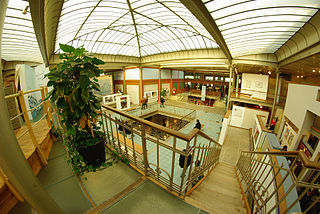Top World Bank EduTech Blog Posts of 2016


come on in, hopefully you'll find something you like
The World Bank's
seeks to "explore issues related to the use of information and communications technologies (ICTs) to benefit education in developing countries". Over the past eight years, it has highlighted an eclectic batch of related new research and explored emerging 'good practices' (and more than a few bad ones as well). Along the way, it has briefly documented and analyzed a wide variety of interesting projects and programs around the world seeking to use new technologies in the education sector. In doing so, it has perhaps posed (and re-framed) many more questions than it has it has provided hard-and-fast 'answers'.
Given the fast-changing nature of so much of our world today, and the expectation that the pace of technology-enabled change is unlikely to slow, it is an abiding conceit of this blog that our individual and collective ability to ask better questions related to the use of new technologies and technology-enabled approaches in education (not only about what we should be doing, and when, and where, but especially about the why and the how) will become an increasingly critical skill to develop and cultivate. There is no shortage of edtech-related 'solutions' marketed around the world, but are they addressing the right problems and most critical challenges? As Wadi Haddad likes to ask: If technology is the answer, what is the question?
The blog seeks, perhaps rather presumptively, to inject an evidence-based, practical tonic into various debates and deliberations about the use of new technologies in the education sector that are, in many places, often characterized by ideological extremes and a general lack of knowledge about what's actually happening 'on-the-ground', especially in many emerging economies and so-called 'developing countries' around the world. While the blog deliberately attempts to adopt a general tone and perspective of fairness and objectivity, 'balance' can admittedly be a rather elusive goal when trying to navigate between the giddy utopianism of many techno-enthusiasts (especially among many in Silicon Valley, and more than a few politicians) and the sometimes rather crotchety conservatism of the reflexively anti-technology (indeed, often anti-change) crowd. In theory, there should be a vast space between these two poles; in practice, such middle ground can often be hard to find, or negotiate, in many places in the world.
The historian Melvin Kranzberg famously opined that technology is neither positive nor negative, nor is it neutral. What is clear, however, is that there will increasingly be much more of it, all around us -- including in our schools, and embedded within teaching and learning practices in communities pretty much everywhere: rich and poor, urban and rural. Yes, technology-fueled 'revolutions' in education have been promised for almost a century now, but even if the related change (for better and/or worse) has been long in coming, there is little denying that there is much change afoot these days (again, for better and/or worse). How can we make better decisions about what's important, and what isn't, and how we can tell the difference? By highlighting some interesting things happening in parts of the world that you may not have heard (or thought much) about, the EduTech blog continues to try, in an admittedly modest and incomplete way, to help provide fodder for related discussion, discourse and disagreement in educational policymaking circles in many countries.
Tools and ideas to transform education. Sign up below.
What follows below is a quick outline of the top EduTech blog posts from 2016. If you're new to the blog, please do feel to browse our 'back catalog' as well, as many of the 'hits' from past years continue somehow to draw in large numbers of readers, in a number of cases even more than for the new stuff. (Here, for what it's worth, are links to the top posts of 2015; 2014; 2013; 2012; 2011; 2010; and 2009.)
The blog went on a bit of a hiatus for part of 2016, so there is much in the queue that will appear in the early months of 2017. As always, the best way to be notified when new posts appear is to subscribe to us on Twitter (@WBedutech) and/or enter your email address into the 'subscribe by email' box that appears in the right column of your screen if you are reading this on a desktop (the mobile-optimized version of the blog omits this functionality, unfortunately). If you want a sneak peek at topics in the pipeline, as well as links to related news, projects and research papers, you may want to check out the Twitter account of the blog's principal author.
Thanks for taking time out of your busy schedule to visit this blog -- and good luck with whatever projects or decisions you may be considering for the New Year!
Top World Bank EduTech Blog Posts of 2016
10. Learning from the use of technology in showcase schools
Let's say you're lucky enough to visit a school you've never been to before and want to learn from how it is using (and not using) the various teaching and learning technologies available to it. Government officials will be keen to show off some showcase examples. How can you evaluate what they want you to see, while at the same time identifying and learning from what they might not want you to notice?
9. Mobile Internet buses, vans and classrooms to support teachers & learners in remote communities
Around the world, efforts to connect schools to the Internet are accelerating. But what about schools that remain difficult to connect -- are there other ways that they can benefit from connectivity, even if the wires or cables stop many miles from their front doors and where wireless connections remain technically or financially infeasible? A number of countries have experimented with different approaches to putting the Internet 'on wheels' and driving it out to remote places.
8. An innovative approach to the procurement of 'innovative' large scale educational technology programs?
Lots of people get excited about what has happened within 'pilot projects' where new technologies are introduced for use in a limited number of schools. Change within a school or classroom is admittedly hard ... but how do you change things across an entire educational system? One important enabler of, or impediment to, system-wide change can be found in governmental procurement practices and guidelines. This post examined one attempt to explore some new related approaches.
7. Revisiting the Digital Native Hypothesis
Kids intuitively, instinctively know how to use new digital technologies -- including to learn. Or do they? This post examines a long-promoted facttheory hypothesis.
6. Learning from a visit to a school using technology: Some questions to consider
This post is essentially an annotated checklist of some questions you may wish to ask when visiting a school to learn about how it uses new technologies. There is perhaps nothing particularly novel or insightful in this post, which has been widely read and recirculated -- but hopefully something here might help you as you develop related insights of your own.
5. Open data, closed algorithms, and the Black Box of Education
It is becoming easier to get access to data about what is happening in many schools ... but what do we know and understand about the tools that are making these data available? How do they work -- and how do we know?
4. Zero-rating educational content on the Internet
While costs are (on the whole) decreasing, in many parts of the world it is still prohibitively expensive to get online -- especially when using your own mobile device. This post looks at one approach to lessening some related costs for users ('zero-rating') that some see as promising -- and many others do not.
3. Education provides the analogue foundation for our digital lives
The 2016 World Development Report assesses the 'digital dividends' that are accruing as the result of investments in new digital technologies -- and concludes that the benefits are not being realized equally by all segments of society. This companion post examines how this general trend relates to the education sector -- and what might need to be done as a result.
2. How students in Uruguayan schools are being taught English over the Internet by teachers in Argentina -- and in the UK & the Philippines
Uruguay's pioneering Plan Ceibal continued to innovate in 2016 in many ways. Approaching its tenth year of activity, it has grown far beyond its origins as the first initiative in the world to provide free laptops to all students in government-supported primary schools. The project continued to evolve in 2016, as evidenced by expanded efforts to promote coding and digital robotics in education; lots of new digital teaching and learning content; new research and programs from its dedicated institute that serves as an international locus for information sharing about the impact of educational technologies; and an innovative approach to draw on global expertise to help promote English learning in Uruguayan schools.
extra: Digital teaching and learning resources: An EduTech reader
The most read new EduTech blog post of 2016 was actually a curated collection of numerous previous posts on topics related to the changing nature of digital educational publishing. It's really more of a general reference document than a coherent blog post, but it was widely linked to and shared on social media in 2016.
1. What's changed: Ten reflections on ten years of technology use in education + Reflections on the last five years of 'mobile learning'
Given that it has featured a few hundred posts touching on topics related to the use of information and communication technologies in education systems in middle and low income countries over the past eight years (drawing along the way on over two decades of related experience), the World Bank's EduTech blog represents in some ways a rather unique sustained information resource. Part of its utility (or so readers tell us) is that it can help provide a bit of historical perspective to folks attempting to separate the hope from the hype while they consider the potential use of the latest (and no doubt greatest!) new technology that is being pitched to them. These two posts in 2016 (occasioned by Mobile Learning Week and the Global Symposium on ICT Use in Education) explicitly sought to highlight and explore some of what has changed over the years -- and what hasn't.
~
OK, that's it for 2016. Thanks for reading, and see you (hopefully) in 2017!
-M
Note: The image used at the top of this blog post ("come on in, hopefully you'll find something you like") is of the Belgian Centre for Comic Strip Art in Brussels. It comes from the Wikipedian Bd-blogeur via Wikimedia Commons and is used according to the terms of its Creative Commons Attribution-Share Alike 3.0 Unported license.
cross posted at blogs.worldbank.org/edutech
Michael Trucano is the World Bank's Senior Education & Technology Policy Specialist and Global Lead for Innovation in Education, serving as the organization's focal point on issues at the intersection of technology use and education in middle- and low-income countries and emerging markets around the world. Read more at blogs.worldbank.org/edutech.
